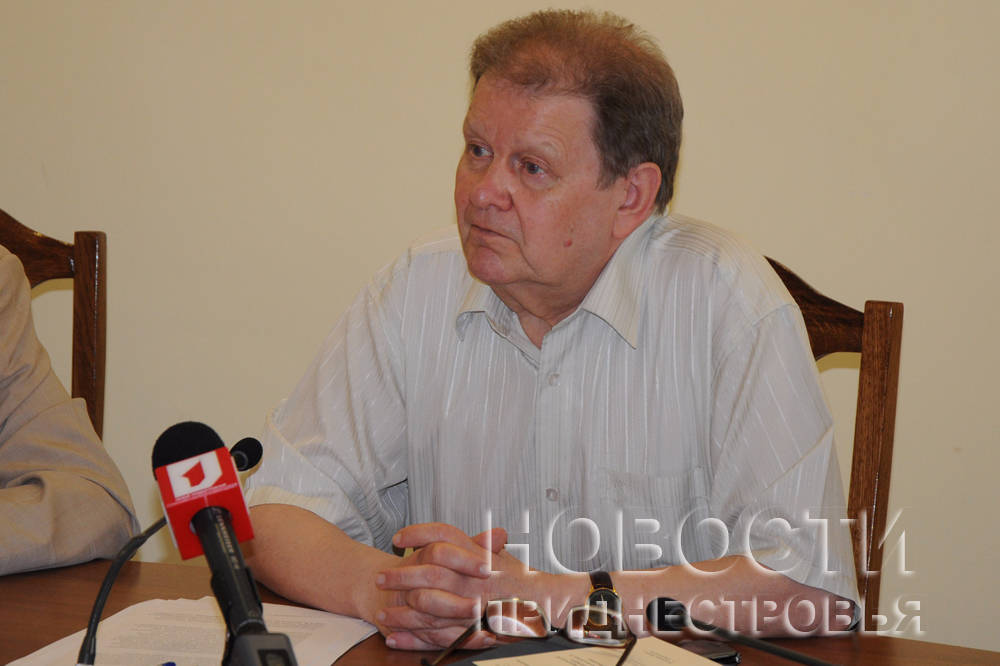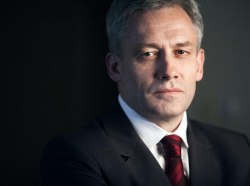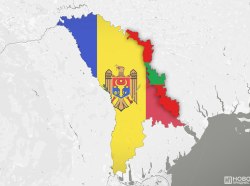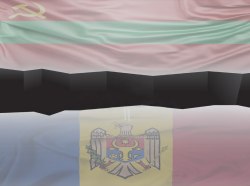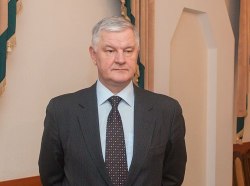Last Saturday there were mass protest rallies in the capital of Moldova. According to the official information, about 30,000 protesters demanded the resignation of the president, parliament's dismissal and early elections. Kishinev's central square was occupied by both the supporters of the Eurointegration (civil platform Dignity and Truth (DA)) and pro-Russian forces, including socialists and the supporters of Renato Usatîi's Our Party. Protest rallies were the result of nominating Pavel Filip, a Democratic Party member and an associate of Vladimir Plahotniuc, who is often called 'the puppeteer of the Moldovan politics', as a candidate for the position of prime minister.
Protesters believe that Vlad Plahotniuc is trying to take all branches of power under his control. In order to prevent it, protesters are calling for the 'reset' of power through early elections.
The head of the political science and administration department of Shevchenko Pridnestrovian State University, Ilya Galinsky, shared with Novosti Pridnestrovya his views on the Kishinev events and their possible implications.
«Both the right and left wing protesters who organise mass rallies in Kishinev, calling for early elections, have no chance of turning the tide and succeeding if they act in a legal way. In case they undertake some illegal, destructive steps, for instance, an attack on the parliament or the president's residence to seize power, the whole arsenal of law enforcement means will be used against them, including physical neutralisation," says Ilya Galinsky.
«The authorities, without taking measures against frantic protesters and their leaders (first of all, Igor Dodon and Renato Usatîi), are pushing them to aggressive actions in order to blame them afterwards for organising a 'maidan' and a coup attempt. The authorities will try to use force to suppress protests and clean up Moldova's political arena, making it completely pro-European," notes the expert.
Ilya Galinsky is sure that nobody (in the first line, Romania and the USA) will permit the protesters to organise an «October Revolution». At the same time, the protesters will not be able «to hold early elections and win them by constitutional means», he believes.
«The impact of these protests on the current government is, in our view, negligible," says the expert.
«Today, centre leftists and DA members are holding common protests as they have a common enemy — the governing majority of right wing parties. However, this alliance is momentary, having no fundamental platform. With a slightest change of the situation, it will break in no time. We also cast doubt on the 'friendly union' of Igor Dodon's socialists and Renato Usatîi's supporters," says Ilya Galinsky.
Further events will mainly depend on the way Moldova's superior international partners will respond to the country's current political structure, the expert believes.
«Today Moldova's politics resemble a 'hot frying pan'.» From a country with European aspirations it has turned into the display of corruption, nepotism, political rivalry and provocations. This has placed European officials in a very difficult situation. Despite thundering statements made in Brussels, the EU is ready for political reasons to turn a blind eye to Moldova's sins and prevent it from coming under Russia's influence (it should be taken in account that the Moldovan society is divided almost in half into EU integration supporters and those advocating the Eurasian integration). Let alone the USA, which is pursuing its national interests in Moldova through Romania and supporting the governing coalition," says the political scientist.
«Of course, Russia is not standing aside, either. It is supporting Moldova's centre leftists, hoping that sooner or later the ruling right wing coalition will collapse and Eurasian-oriented forces will come to power," says Ilya Galinsky.
According to him, in terms of politics Moldova is «between two magnets which draw it in opposite directions» and «it is very difficult to forecast which strategic direction it will finally move.»
«Now, undoubtedly, its politics are dominated by pro-West landmarks and values. But politics are extremely unpredictable and contradictory, therefore, as was said by a great diplomat, 'everything is possible in politics'," he believes.
However, Moldova's events always have impact on Pridnestrovie. Kishinev's policy towards Tiraspol will depend on which political forces will come to power.
«In case the centre-right coalition wins outright, its Pridnestrovian policy will be based on the same principles: permanent pressure in all directions, creating all possible difficulties, restrictions, blockades, establishing a special zone of the Moldovan control along the Ukrainian-Pridnestrovian border and so on. In other words, Pridnestrovie will be forced into reintegration," Ilya Galinsky is sure.
At the same time, according to the expert, in event pro-Russian forces come to power, there may appear a plan for the settlement of the Pridnestrovian conflict under Russia's political guarantees, which may be based on the «Kozak memorandum».

